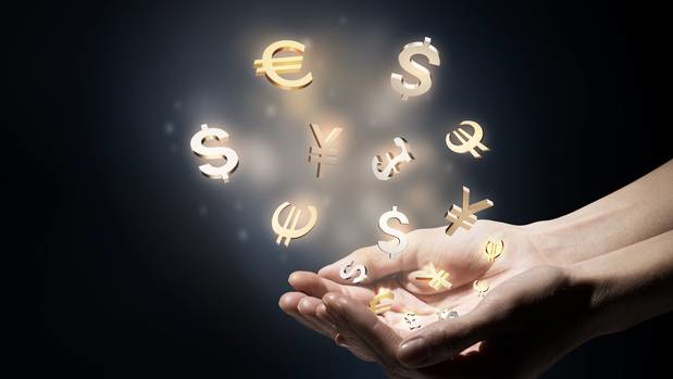
COMMENT:
Is the world in transition to something better, or something worse? Pondering the periods the world has transited to arrive where we are today requires examination. In relatively contemporary times, there has been the Enlightenment, the Agrarian Revolution, the Industrial Revolution, the Information Revolution, and I would add, the Transport and Data Revolutions.
What if we include a Monetary Revolution, which is most definitely in motion. What I refer to specifically is a development known as Modern Monetary Theory. Which I would rank roughly alongside Bitcoin, but for alternative reasons. My first experience with it revolved around a four-year-old, 25 years ago. Out shopping with said son, who, as usual, was exercising his favourite phrase, "Can I have…" At least it wasn't "I want." So, my regular response emerged: "I don't have any money." At which he pointed to a cashier in the process of giving change to a customer, and said enthusiastically, "She will give you some money." Over time, I became the cashier: is there any end to it? MMT is a theory not dissimilar to the cashier theory. My kid is a genius.
The change in attitude to what money is both intrigues and horrifies me. The value of money is reliant on a number of factors. The most important of which is faith. The history of money is relevant from a teaching/learning perspective. Not in order, security, transportability, scarcity, acceptance, divisibility and faith all play a role. Let's not forget the freedom to do with it as you want. In a totalitarian economy, money is what you're told it is, and its value excruciatingly volatile. Just two current examples: Venezuela and Zimbabwe.
There are numerous theories in the mix, which in an age of poor, even corrupt, education, are gaining momentum. Not exclusively, but especially, with millennials and whatever groups are following them. And while the US appears to be the centre for MMT development, it is gaining momentum elsewhere and will continue to attract greater attention.
MMT's most public advocate is undoubtedly 29-year-old newly-elected congresswoman Alexandria Ocasio-Cortez, the dreamer of the Green New Deal. She has an economics degree from Boston University, don't you know. Thereby undermining the value of every B.Ec from Boston and many other places of lesser learning. The new green deal, costed at a loose one hundred trillion dollars, would be paid for via MMT. She claimed.
Here, a description of a very short video skit explaining MMT to a group of adults, by a teacher and a young student. Teacher writes one hundred dollars on the blackboard, and explains, "We have one hundred dollars." Teacher then says, "but we can do more.." and adds three more zeros. Now they both exclaim, "Now we have one hundred thousand dollars." And the audience applauds.
It reminds me of Merlin the Magician, from King Arthur's court. Merlin and other sorcerers were preoccupied with turning lead and other base metals into gold. They believed it possible but just had to find the key. There is actually a very interesting history to alchemy, including even Sir Isaac Newton, who wrote an estimated million words on the topic. So it is with present-day sorcerers of the left, socialists, Marxists, progressives and academics.
Enter Professor William Mitchell from the University of Newcastle, Australia. Professor Mitchell is lead author of the world's first macroeconomics textbook on MMT. Any thought of buying a copy was remedied by the price, NZ$154. There was a supporting reason. In the good professor's personal details was a list of influences on his perspective. The first was Karl Marx.
Professor Mitchell argues we should be ready to trust politicians with the economy. If they bribe voters with deficit spending that results in inflation, voters can punish them at the ballot box. With MMT, economic policy would be upended, with government taking charge. The core tenets of MMT and the closest it gets to a theory, are that the economy and inflation should be managed through fiscal policy, not monetary policy. There is more to it, but I would summarise MMT this way. It is a government controlled policy and governments already have enough power to intervene in the supposed free market.
Cullen Roche, author of Pragmatic Capitalism put together a lengthy critique of MMT based on five different points. Critique five is "MMT is not empirically tested... It is more a set of beliefs than a set of economic principals."
That goes hand in glove with other aspects of today's world. Belief is much more important than fact. We've seen it in the media regarding Trump, in areas of science, and here now another example entering the political playground. Nobel prize-winner Paul Krugman, of the New York Times, and Larry Summers from Harvard; two men with whom I have little in common. Krugman is contemptuous with MMT devotees and Summers called MMP "voodoo economics". Strange bedfellows. Again, how ironic. But these are interesting times.
Take your Radio, Podcasts and Music with you









